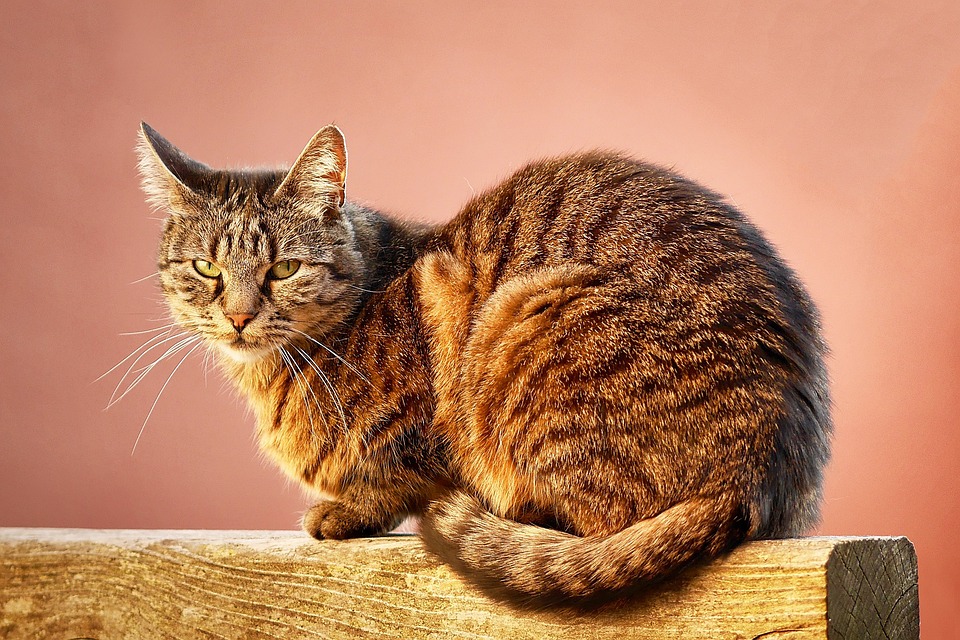Cats, just like humans, can experience joint pain and inflammation as they age or due to certain health conditions. While conventional treatments are available, many cat owners are now turning to natural remedies to alleviate their feline companions’ discomfort. In this article, we will explore some effective natural remedies for cat joint pain and inflammation, backed by expert advice and research.
Understanding Cat Joint Pain and Inflammation
Joint pain and inflammation in cats can be caused by various factors, including arthritis, injury, or genetic predisposition. Some common signs and symptoms to look out for include limping, difficulty jumping or climbing, decreased mobility, and changes in behavior or temperament.
Natural Remedies for Cat Joint Pain and Inflammation
1. Omega-3 Fatty Acids
Omega-3 fatty acids have anti-inflammatory properties that can help reduce joint inflammation in cats. These essential fatty acids can be found in fish oil, specifically in fatty fish like salmon and sardines. It is important to choose high-quality fish oil supplements specifically formulated for cats and follow the recommended dosage provided by your veterinarian.
2. Turmeric
Turmeric contains curcumin, a natural anti-inflammatory compound that can help alleviate joint pain in cats. It is important to note that turmeric should be given in moderation and under veterinary supervision, as cats may have difficulty metabolizing certain compounds in turmeric. Consult your veterinarian for guidance on how to safely incorporate turmeric into your cat’s diet.
3. Glucosamine and Chondroitin
Glucosamine and chondroitin are compounds that play a crucial role in maintaining joint health and reducing pain. These supplements can be added to your cat’s diet in the form of treats or capsules. It is important to choose high-quality supplements specifically formulated for cats and follow the recommended dosage provided by your veterinarian.
4. Massage and Physical Therapy
Massage and physical therapy can help relieve joint pain and improve mobility in cats. Gentle massage techniques, such as gentle kneading and stretching, can help increase blood flow and reduce muscle tension. It is important to consult with a professional therapist who specializes in animal massage and physical therapy to ensure the safety and effectiveness of these techniques.
5. Weight Management
Excess weight can put additional strain on your cat’s joints, leading to increased pain and inflammation. Creating a balanced diet plan that focuses on weight management can help alleviate joint pain in overweight cats. Additionally, incorporating regular exercise into your cat’s routine, such as interactive play sessions or supervised outdoor exploration, can help improve joint mobility.
6. Acupuncture and Acupressure
Acupuncture and acupressure can stimulate pain relief and improve joint function in cats. However, it is important to seek a certified veterinary acupuncturist who has experience working with cats. It is also important to be aware of potential benefits and risks associated with these treatments and consult with your veterinarian before starting any acupuncture or acupressure sessions.
FAQs (Frequently Asked Questions)
1. Can I use over-the-counter human joint supplements for my cat’s joint pain?
It is not recommended to use over-the-counter human joint supplements for cats, as they may contain ingredients that are harmful or ineffective for feline use. Consult your veterinarian for appropriate joint supplements for your cat.
2. Are there any specific food ingredients I should avoid in my cat’s diet to reduce joint inflammation?
Some cats may have sensitivities or allergies to certain food ingredients that can exacerbate joint inflammation. Common allergens include grains, dairy, and certain protein sources. A veterinarian can help identify any potential food allergies or sensitivities and recommend appropriate dietary adjustments.
3. Can I use essential oils to relieve my cat’s joint pain?
It is important to exercise caution when using essential oils around cats, as they can be toxic if ingested or absorbed through the skin. Some essential oils, such as lavender and chamomile, can be diluted and used in a diffuser to create a calming environment, but it is best to consult with a veterinarian before using any essential oils.
4. How long does it take for natural remedies to show improvements in my cat’s joint pain?
The time it takes for natural remedies to show improvements in a cat’s joint pain can vary depending on the severity of the condition and the individual cat. It is important to be patient and consistent with the chosen remedies, and to monitor your cat’s progress closely. If there are no improvements or if the condition worsens, consult your veterinarian for further guidance.
5. Should I consult a veterinarian before starting any natural remedies for my cat’s joint pain?
Yes, it is crucial to consult with a veterinarian before implementing any natural remedies for your cat’s joint pain. A veterinarian can provide tailored advice based on your cat’s specific condition and recommend the most appropriate remedies and dosages.
6. Are there any age restrictions for using natural remedies on cats with joint pain?
There are generally no age restrictions for using natural remedies on cats with joint pain. However, it is important to consider the overall health and condition of the cat before starting any treatments. Older cats or cats with pre-existing health conditions may require additional veterinary guidance and monitoring.
7. Can natural remedies completely cure my cat’s joint pain, or are they just temporary solutions?
Natural remedies can help manage and alleviate cat joint pain and inflammation, but they may not completely cure the underlying condition. It is important to approach natural remedies as part of a holistic treatment plan that includes veterinary care, proper nutrition, and lifestyle adjustments.
Conclusion
Taking a holistic approach to managing cat joint pain and inflammation can greatly improve your feline companion’s quality of life. However, it is crucial to consult with a veterinarian before implementing any natural remedies, as they can provide tailored advice based on your cat’s specific condition. By combining natural remedies, proper nutrition, and veterinary guidance, you can help your cat live a more comfortable and pain-free life.








